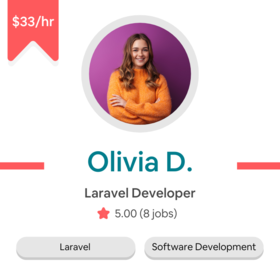













Once a niche concept, DevOps has firmly established itself as the linchpin of modern software development and infrastructure management practices. In our dynamic digital age, where customer demands evolve rapidly, and market trends shift with increasing velocity, the traditional waterfall software development model can no longer keep pace. Enter DevOps, a holistic approach that goes beyond just software creation, focusing on the entire service or software delivery lifecycle.
By fostering a culture of open communication, collaboration, and continuous feedback, DevOps eliminates the inefficiencies and bottlenecks traditionally found in siloed development environments and ensures that the software is always in sync with business objectives. Integrating automated tools in the DevOps pipeline further accelerates the deployment frequency, reduces the change failure rate, and shortens the time to recover from disruptions. This continuous integration and delivery model enables businesses to respond faster to market changes, optimize their IT expenses, and deliver a more consistent and enhanced user experience.
Moreover, in an era where cyber threats are rampant, the DevOps philosophy, emphasizing continuous monitoring and automation, is pivotal in bolstering security. By integrating security practices into the DevOps pipeline, organizations can identify vulnerabilities early, ensuring the code is robust, efficient, and secure. In essence, embracing DevOps is not just a strategic move for acceleratedsoftware development; it's a comprehensive approach to achieving operational excellence, fostering innovation, and staying ahead of the competitive curve.
In a digital-first world, businesses must be agile, responding swiftly to market changes, customer demands, and emerging challenges. Traditional software development methodologies often involve long, isolated phases, and introducing changes or promptly responding to feedback takes a lot of work. On the other hand, DevOps promotes iterative development, continuous feedback, and frequent code releases. This agility enables businesses to:
Accelerate Time-to-Market:With continuous integration and continuous deployment (CI/CD) practices at the heart of DevOps, companies can reduce the software delivery lifecycle and bring products or features to market faster.
Enhance Quality & Reliability:Automated testing, frequent code releases, and real-time monitoring ensure the software is continuously deployable, leading to fewer defects and outages.
Boost Collaboration & Communication:By eliminating silos, DevOps fosters a culture of collaboration and open communication between teams, enhancing overall productivity and innovation.
DevOps is not just about tools and technologies; it's fundamentally about culture and people. A skilled DevOps engineer can introduce best practices, automate workflows, and foster a culture of collaboration and continuous improvement. At Cad Crowd, our curated network of freelance DevOps engineers,programmers and developerspossess the technical insight, experience, and soft skills essential for successful DevOps transformation.
Infrastructure Automation:Proficiency with tools like Ansible, Puppet, or Chef for automating infrastructure provisioning and configuration.
CI/CD Expertise:Familiarity with CI/CD tools like Jenkins, Travis CI, or CircleCI for automating the software delivery process.
Version Control:In-depth understanding of version control systems like Git, ensuring seamless collaboration and code management.
Containerization & Orchestration:Experience with Docker for containerization and Kubernetes for orchestrating containerized applications.
Monitoring & Logging:Skills in using monitoring tools like Prometheus or Grafana and logging tools like ELK Stack or Splunk to keep tabs on application performance and troubleshoot issues.
The concept of DevOps is anchored in the unification of software development (Dev) and IT operations (Ops), but what truly makes this marriage seamless is the implementation ofCI/CD. Continuous Integration and Continuous Delivery (or Deployment) are the cornerstones of modern DevOps practices. They revolve around the notion that code changes should be automatically and frequently integrated into the main branch, tested, and deployed to production, ensuring that software is always in a deployable state.
This automated process eradicates manual errors and accelerates the feedback loop, enabling quicker iterations. For businesses, this translates to faster time-to-market, improved product quality, and enhanced customer satisfaction. When interviewing prospective DevOps engineers, it's crucial to gauge their depth of understanding and hands-on experience with CI/CD pipelines. Their insights into CI/CD best practices, toolchain orchestration, and strategies for overcoming common bottlenecks can drive efficiency and innovation in your software development lifecycle.
Another revolutionary trend in the DevOps realm is the practice ofInfrastructure as Code (IaC). IaC manages and provides computer data centers through machine-readable definition files rather than relying on physical hardware or interactive configuration tools. This approach allows DevOps teams to automate the setup, structure, and management of infrastructure, thereby ensuring consistency, reducing manual intervention, and mitigating risks associated with human errors. When infrastructure is represented as code, it becomes versionable, testable, and repeatable, just like software code.
As organizations aim to scale their operations, the ability to spin up identical environments in minutes using IaC becomes invaluable. It's no longer about managing individual servers but orchestrating complex setups with a single command or a few lines of code. A DevOps engineer is adept at harnessing the power of IaC and can empower your organization to scale effortlessly, manage infrastructure efficiently, and adapt to ever-changing business needs with agility and precision.
With the increasing shift towards cloud computing, the role of a DevOps engineer has evolved to incorporate cloud-specific practices. Engineers well-versed in cloud platforms like AWS, Azure, or Google Cloud can help businesses leverage cloud-native tools, scale seamlessly, and optimize costs. Integrating cloud practices within DevOps ensures greater flexibility, scalability, and resilience.
Navigating the world of hiring can be challenging, especially when it comes to determining competitive salaries. To help you stay informed and make the best hiring decisions, we've compiled a breakdown of the average wages for DevOps engineers across various countries:
| Region | Average Salary (in local currency) | Average Salary (in USD) |
| U.S. | $115,000 | $115,000 |
| India | INR 1,500,000 | $20,000 |
| Canada | CAD 112,000 | $90,000 |
| UK | £60,000 | 80000美元 |
| Australia | 130澳元,000 | $100,000 |
Note: The figures above are approximate and might vary based on experience, expertise, and specific roles.
Interviewing potential DevOps engineers requires a mix of technical queries and questions to understand their problem-solving aptitude, teamwork, and cultural fit. Here's a concise guide to ensure you assess candidates comprehensively:
Technical Proficiency:Begin by evaluating their technical expertise. Ask about their experiences with various DevOps tools and methodologies, preferences, and opinions on emerging DevOps trends.
Problem-Solving Skills:Delve into their approach to troubleshooting issues or implementing new features.
Team Collaboration:Since DevOps emphasizes collaboration, gauge their teamwork and communication abilities.
Culture Fit:As DevOps also focuses on cultural shifts, it's essential to ensure the engineer aligns with your company's values and goals.
DevOps是费用riencing a rapid transformation with the emergence of new technologies such asAI, ML, and Edge Computing. These trends are revolutionizing the landscape, and businesses must take note and integrate them into their workflows in order to stay ahead. To maintain innovation, efficiency, and competitiveness, it is imperative to have a skilled DevOps engineer who is continuously learning and adapting to the changes in the industry. Their expertise can make all the difference in keeping businesses at the forefront of the ever-evolving DevOps landscape.
在一个数字化的时代中断,DevOps也不长er a choice but a necessity for businesses striving to stay relevant and competitive. Whether you're just starting your DevOps journey or looking to optimize your existing processes, partnering with the right DevOps engineer can be a game-changer. With Cad Crowd, you can connect with top-tier DevOps professionals tailored to your project needs, ensuring your software delivery process is efficient, robust, and future-ready.
Ready to supercharge your software delivery process and achieve unparalleled operational efficiency? Dive into the world of DevOps with Cad Crowd's elite engineers. From seamless integration to continuous delivery, our DevOps specialists will guide you through every step, ensuring your projects are streamlined, secure, and aligned with your business objectives. Don't wait to gain a competitive edge. Get afree quoteand discover how it works. Transform your operations; embrace the DevOps revolution today.


